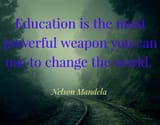Effective Study Techniques: A Comprehensive Guide
Studying can pose challenges, especially when you have much to cover in a short period or are trying to learn new information and retain it for future use. However, with the right strategies and techniques, you can make studying more effective and enjoyable and achieve better results.

Introduction
Whether you are a student, teacher, parent, or guardian, you require knowledge on how to unleash the power of learning. Students must keep up-to-date with effective study techniques to cope with the ever-competitive academic world. Teachers, parents, guardians, and education stakeholders require knowledge on how to guide learners through effective studying.
Studying can pose challenges, especially when you have much to cover in a short period or are trying to learn new information and retain it for future use. However, with the right strategies and techniques, you can make studying more effective and enjoyable and achieve better results. Embarking on the path to academic success requires more than just spending time buried in textbooks and reading notes.
The key to thriving in studies is cultivating healthy habits that enhance focus, comprehension, and long-term retention. Suretash Education will, in this newsletter, explore a blueprint for excellence by delving into practical and sustainable study habits that help you make the most out of your study sessions and achieve academic success.
Unveiling the Art of Studying
- Create a Dedicated Study Space: Your physical environment can significantly impact concentration and information retention. Create a dedicated study space that is quiet, organized, comfortable, and free from distractions. Your study space can be a desk in your room or class, a quiet corner of the library, a study room, a coffee shop, or any other place that helps you concentrate. Having a dedicated study environment primes your mind for focused learning.
- Set Clear and Achievable Goals: Set and prioritize goals before you start studying; it is essential to set clear goals and prioritize your tasks. Break down your study sessions into clear, realistic, and achievable goals. Set specific objectives and deadlines for each one, whether completing a certain number of pages, mastering a particular concept, achieving a specific grade, or solving a set of problems. Achieving these micro-goals fuels a sense of progress. Possessing a clear goal helps you stay focused and avoid procrastination. Once you have set your goal, it is time to create a study plan. A study plan will help you organize your study time and ensure you cover all the topics you need; creating a schedule that includes all your study sessions and breaks is vital.
- Understand Your Learning Style: One size does not fit all when studying. Everyone has a unique learning style, and finding out what works best for you is essential. Begin by identifying your learning style. Some people are visual learners, while others learn better through auditory or kinesthetic learners who learn best by doing-hands on method. Experiment with different techniques and find the ones that work best for you. Learning styles can include reading, taking notes, listening to lectures, watching videos, or using flashcards. Aligning your study techniques to your learning style can significantly boost your understanding of the material.
- Establish a Consistent Study Routine: Consistency is the cornerstone of successful studying. Set a regular study routine that aligns with your natural peak concentration hours. A routine creates structure and discipline, whether it's a few dedicated hours every day or focused study sessions on specific days. Organize your study materials, notes, and resources systematically. Whether using digital tools or traditional binders, an organized system streamlines the study process and facilitates easy retrieval of information.
- Utilize Active Learning Techniques: Move beyond passive reading by incorporating active learning methods. Active learning methods are more effective than passive learning methods. Active learning techniques include summarizing information in your own words, creating flashcards, teaching the material to someone else, solving problems, or engaging in discussions. Active engagement enhances understanding and retention. Passive learning techniques include reading and listening.
- Take Regular Breaks: Incorporate breaks into your study routine. Taking regular breaks is essential for effective studying. Regular breaks help you stay attentive and avoid fatigue. Where possible, incorporate the Pomodoro Technique, which involves short, concentrated study sessions followed by brief breaks. This technique effectively enhances productivity and prevents mental fatigue. Ideally, take a 10-15 minute break every hour where possible. During your break, you can do something relaxing, such as taking a walk or listening to music.
- Practice Retrieval Techniques: Testing yourself is a great way to check your understanding of the material and recall ability. You can test yourself using flashcards, quizzes, or summarizing what you have learned. Regular testing reinforces learning, strengthens memory, and helps you identify areas you need to review, enabling you to focus on your weaknesses.
- Prioritize Quality Over Quantity: Focus on the quality of your study sessions rather than the quantity of time spent. Short, concentrated study sessions with high engagement often yield better results than prolonged, unfocused periods. Learners can creatively incorporate technology in their study endeavors in this digital age. Explore apps and tools designed for note-taking, flashcards, and organization. However, be mindful of potential distractions, and use technology in a way that supports your learning goals.
- Incorporate Multisensory Learning: Engage multiple senses in your study process. Use visual aids, listen to relevant podcasts or videos, and incorporate hands-on activities where applicable. Multisensory learning reinforces understanding and appeals to different learning styles. Utilize Mind Mapping Techniques. Mind mapping is a powerful visual technique that can help you organize and connect ideas. Create mind maps to represent complex topics, making it easier to visualize relationships between concepts. This technique enhances your ability to recall information during exams.
- Prioritize Self-Care: Studying can be stressful, so minding your physical and mental health is essential. Make sure to get enough sleep, exercise regularly, have a balanced diet, and practice stress-reduction techniques such as meditation or deep breathing. Taking care of your physical and mental health helps you stay focused and enthusiastic throughout your studies. Keep in mind that a healthy mind resides in a healthy body. Having enough sleep is essential for effective studying. Inadequate sleep can affect your concentration and memory. Where possible, ensure you get at least 7-8 hours of sleep every night. Strive to maintain a balanced diet of fruits, vegetables, and protein. Minimize sugary and high-fat foods, which can affect your energy levels and concentration. A well-nourished and rested brain is more receptive to learning. A balanced lifestyle contributes to better cognitive function and overall well-being.
Conclusion
Effective study techniques are not a one-size-fits-all solution; they combine strategies tailored to your unique learning style and preferences. By incorporating these comprehensive techniques into your study routine, you'll improve your academic performance and cultivate a lifelong love for learning. Remember, it's not just about the quantity of study time but the quality of your approach that makes all the difference.
Incorporating these healthy study habits into your routine creates a foundation for effective learning, improved retention, and overall academic excellence. Remember, it's not just about mastering the material but also fostering a sustainable and fulfilling approach to the learning process.
In conclusion, effective study strategies can significantly impact your academic performance. By creating a dedicated study space, setting clear and achievable goals, understanding your learning style, establishing a consistent study routine, utilizing active learning techniques, taking regular breaks, practicing retrieval techniques, prioritizing quality over quantity, incorporating multi-sensory learning, and prioritizing self-care, you can improve your ability to learn and retain information. Studying is more than how long you study; it is how effectively you study. With these tips, you can succeed in school and beyond.
Post script
Select your Plan
Suretash Education is a publication supported by readers. To receive new posts and support our work, consider becoming a paid subscriber. To activate your subscription, click on the link in your email or spam after subscribing. Paid subscribers will expect a newsletter in their email inbox fortnightly. Select your plan here.






